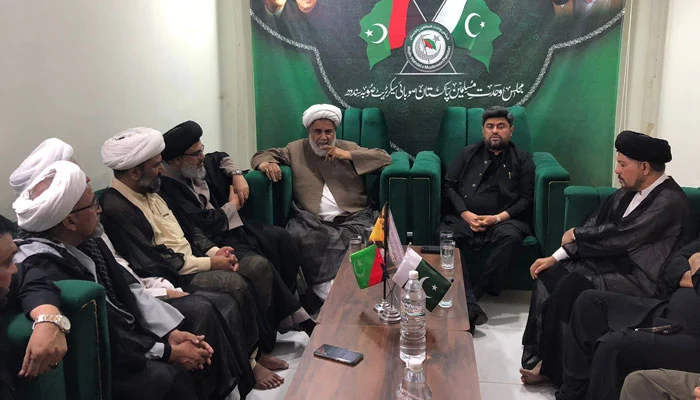Majlis Wahdat-e-Muslimeen (MWM) has temporarily suspended its protest march against the government’s ban on overland travel to Iraq and Iran for Arbaeen pilgrims. The decision followed late-night negotiations with Sindh Governor Kamran Tessori, who visited the MWM secretariat in Karachi. Tessori stated that further discussions would take place in the afternoon, expressing hope for a resolution. However, MWM leaders cautioned that the protest was only paused and would resume if demands remain unmet.
Interior Minister Mohsin Naqvi had earlier announced the ban, citing security risks for pilgrims traveling by road. The decision was made after consultations with the Foreign Ministry, Balochistan government, and security agencies. Governor Tessori revealed that he spoke with Naqvi, who reiterated security concerns as the primary reason. Meanwhile, the Sindh governor assured MWM that efforts were underway to extend Iraqi visa validity, increase special flights, and negotiate lower airfares for pilgrims.
MWM Vice Chairman Allama Ahmed Iqbal Rizvi clarified that the protest was only on hold and could restart if no solution is reached. He criticized the government for failing to provide suitable alternatives despite the travel ban. “If road travel is unsafe, authorities must arrange alternate routes,” Rizvi insisted. He also confirmed that discussions with Governor Tessori included plans to involve State Minister for Interior Talal Chaudhry in further talks.
Every year, around 700,000 Pakistani pilgrims travel to Iraq for Arbaeen, commemorating the martyrdom of Hazrat Imam Hussain (RA). The travel ban has left many devotees distressed, prompting MWM to demand urgent government intervention. With tensions high, all eyes are on today’s negotiations to see whether a compromise can be reached before protests escalate.














